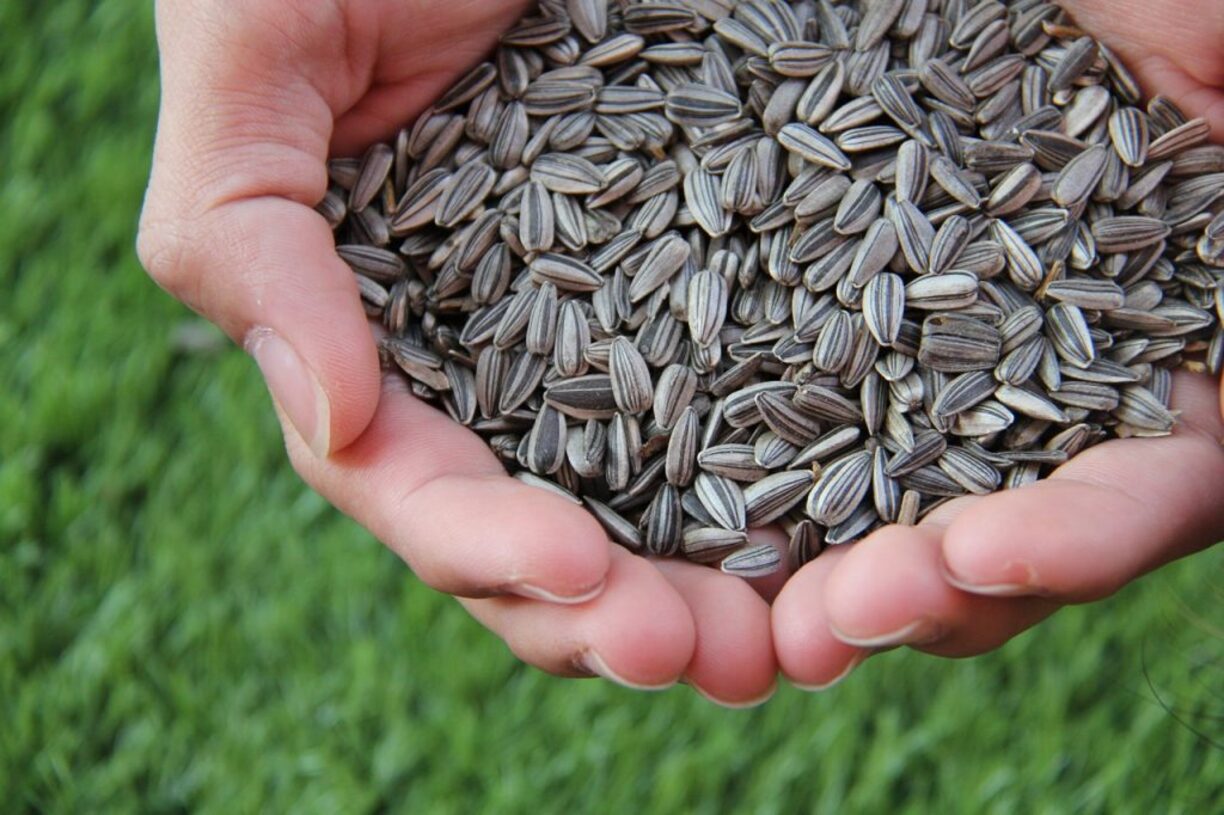

Articles
How To Store Sunflower Seeds
Modified: April 22, 2024
Learn how to store sunflower seeds with our informative articles. Discover the best methods and tips for keeping your sunflower seeds fresh and flavorful.
(Many of the links in this article redirect to a specific reviewed product. Your purchase of these products through affiliate links helps to generate commission for Storables.com, at no extra cost. Learn more)
Introduction
Sunflower seeds are not only a tasty and nutritious snack, but they are also incredibly versatile in the kitchen. Whether you enjoy them roasted, add them to your favorite recipes, or use the oil for cooking, properly storing sunflower seeds is crucial to maintaining their freshness and flavor for an extended period. In this article, we will explore the benefits of storing sunflower seeds, how to choose the right seeds, and the proper techniques for storing them to ensure their longevity.
By following the proper storage methods, you can not only keep your sunflower seeds fresh but also reduce waste and save money in the long run. So, let’s dive in and discover the best practices for storing sunflower seeds!
Key Takeaways:
- Properly storing sunflower seeds preserves freshness, saves money, and reduces waste. Choose the right seeds, prepare them for storage, and store in an airtight container to maintain optimal condition.
- Extend the shelf life of sunflower seeds by storing in shells, keeping cool, and minimizing oxygen exposure. Use stored seeds in snacks, baked goods, spreads, and more for a delightful crunch and nutritional boost.
Read more: How To Make Sunflower Seeds From A Sunflower
Benefits of Storing Sunflower Seeds
Properly storing sunflower seeds offers a multitude of benefits, both in terms of taste and nutrition. Here are some reasons why you should consider storing your sunflower seeds:
- Freshness: When stored correctly, sunflower seeds retain their freshness for a longer period. This means that you can enjoy the delicious crunch and flavor of the seeds even after an extended period of time.
- Cost savings: Buying sunflower seeds in bulk and storing them properly allows you to take advantage of sale prices or discounts. This can result in significant cost savings, especially if you regularly consume sunflower seeds or use them in your cooking.
- Nutritional value: Sunflower seeds are a great source of essential nutrients, including healthy fats, protein, vitamins, and minerals. By storing them properly, you can ensure that these nutrients are preserved, allowing you to enjoy the maximum nutritional benefits.
- Convenience: When you store sunflower seeds at home, you always have them readily available whenever you need them. This is particularly useful if you enjoy snacking on sunflower seeds or if you frequently use them in your recipes.
- Reduced waste: By storing sunflower seeds properly, you can extend their shelf life and minimize waste. This is especially important if you often find yourself throwing away stale or expired sunflower seeds.
Now that you understand the benefits of storing sunflower seeds, let’s move on to the next step: choosing the right seeds for storage.
Choosing the Right Sunflower Seeds
When it comes to storing sunflower seeds, selecting the right seeds is essential to ensure their quality and longevity. Here are some factors to consider when choosing sunflower seeds for storage:
- Variety: Sunflower seeds come in different varieties, such as striped and black oil sunflower seeds. Striped seeds are commonly used for snacking, while black oil seeds are preferred for their oil content. Choose the variety that suits your needs and preferences.
- Freshness: Opt for fresh sunflower seeds to ensure maximum flavor and nutritional value. Look for seeds that are plump, firm, and without any signs of mold or damage.
- Preferred Preparation Method: Consider the method in which you intend to use the sunflower seeds. If you plan to roast them, choose seeds with intact shells. For baking or cooking purposes, shelled seeds are more convenient.
- Organic or Conventional: Decide whether you prefer organic or conventionally grown sunflower seeds. Organic seeds are free of pesticides and are a healthier option, albeit at a higher cost.
- Reputable Brand: Opt for sunflower seeds from a reputable brand or supplier to ensure quality and consistency. Read reviews or seek recommendations from others who have experience with storing sunflower seeds.
By considering these factors, you can select the right sunflower seeds for storage that suit your preferences and intended usage.
Once you have chosen the ideal sunflower seeds, the next step is to prepare them for storage, which we will explore in the following section.
Preparing Sunflower Seeds for Storage
Before you can store sunflower seeds, it’s important to properly prepare them. Follow these steps to ensure your sunflower seeds are clean and ready for storage:
- Remove any debris: Start by inspecting the sunflower seeds and removing any debris, such as stems, leaves, or dirt. This can be done by hand or by using a sieve or strainer.
- Wash the seeds: Rinse the sunflower seeds under cold water to remove any remaining dirt or impurities. Gently rub them between your hands to ensure thorough cleaning.
- Dry the seeds: Spread the sunflower seeds on a clean towel or baking sheet and allow them to air dry completely. Make sure there is no excess moisture before proceeding to the next step.
- Shell or leave intact: Decide whether you want to store the sunflower seeds in their shells or remove the shells. Shelled seeds take up less space and are more convenient for snacking or cooking, but if you prefer the taste and texture of seeds in their shells, keep them intact.
- Roast (optional): If you prefer roasted sunflower seeds, preheat your oven to 350°F (175°C), spread the seeds on a baking sheet, and roast them for 10-15 minutes, or until they turn golden brown. Allow them to cool before storing.
By following these steps, you can ensure that your sunflower seeds are clean, dry, and ready for storage. Now, let’s move on to the next section, where we will explore the best techniques for storing sunflower seeds to maintain their freshness and flavor.
Storing Sunflower Seeds in an Airtight Container
One of the most important factors in preserving the freshness and flavor of sunflower seeds is proper storage. Storing sunflower seeds in an airtight container is key to prevent moisture, pests, and oxidation from affecting their quality. Follow these steps to store your sunflower seeds effectively:
- Choose the right container: Select a clean, dry, and airtight container specifically designed for food storage. Glass jars with tight-fitting lids, plastic containers with strong seals, or vacuum-sealed bags are all good options.
- Label the container: Clearly label the container with the date of storage, as well as any other relevant details, such as the variety of sunflower seeds or the method of preparation (roasted or unroasted).
- Fill the container: Transfer the prepared sunflower seeds into the airtight container. Leave some headspace at the top to allow for expansion and make it easier to mix or shake the seeds occasionally.
- Remove excess air: If using a container with a lid, press down to remove as much air as possible before tightly sealing it. If using a vacuum-sealed bag, follow the manufacturer’s instructions to remove excess air.
- Store in a cool, dark place: Find a cool and dark location to store the container of sunflower seeds. Exposure to heat, light, and fluctuations in temperature can compromise the quality of the seeds.
It’s important to note that storing sunflower seeds in the refrigerator or freezer may extend their shelf life, but it can also affect their texture. The cold temperature can make the seeds softer and affect their crunchiness.
Now that you know the proper storage techniques, let’s move on to understanding the ideal conditions for storing sunflower seeds.
Store sunflower seeds in an airtight container in a cool, dark place to maintain their freshness and prevent them from becoming rancid. Avoid exposing them to heat, light, or moisture.
Read more: How To Get Sunflower Seeds From A Sunflower
Proper Conditions for Storing Sunflower Seeds
Creating the right environment for storing sunflower seeds is crucial to maintaining their freshness and quality over time. Here are the proper conditions for storing sunflower seeds:
- Temperature: Sunflower seeds should be stored in a cool location with a stable temperature. Ideally, the temperature should be between 50°F (10°C) and 70°F (21°C). Avoid storing them in areas exposed to direct sunlight or near heat sources, such as stoves or radiators.
- Humidity: Sunflower seeds are sensitive to humidity and can become stale or moldy if exposed to moisture. Aim to store them in a dry environment with a humidity level below 60%. Avoid storing them in areas prone to high humidity, such as the kitchen or bathroom.
- Avoid odors: Sunflower seeds have a tendency to absorb odors from their surroundings. To preserve their natural flavor, store them away from strong-smelling substances, such as spices, cleaning products, or other foods with pungent aromas.
- Pest control: To prevent infestation by pests, such as insects or rodents, it’s essential to store sunflower seeds in airtight containers. Additionally, consider adding a small sachet of silica gel or a bay leaf to the container to deter any unwanted pests.
By ensuring the proper conditions for storing sunflower seeds, you can maintain their freshness, flavor, and nutritional value for an extended period.
Now that you know how to store sunflower seeds properly, let’s explore how to monitor and maintain their quality in the next section.
Monitoring and Maintaining Sunflower Seed Storage
Proper monitoring and maintenance are crucial to ensuring that your stored sunflower seeds remain in optimal condition. Here are some tips to help you effectively monitor and maintain your sunflower seed storage:
- Regular inspection: Periodically inspect your stored sunflower seeds for any signs of moisture, mold, or pest infestation. Discard any seeds that appear spoiled or have an off smell.
- Rotate or mix: To prevent any moisture or oils from settling, gently rotate or mix the stored sunflower seeds every few months. This helps distribute any moisture evenly and prevents the development of rancidity.
- Check for condensation: Keep an eye out for any condensation or moisture build-up inside the storage container. If you notice any, remove the seeds, dry the container thoroughly, and ensure the seeds are completely dry before returning them to the container.
- Handle with care: When accessing the stored sunflower seeds, always use clean hands or a dry utensil to avoid introducing any moisture or contaminants. Close the storage container tightly after each use.
- Record storage duration: Maintain a record of the storage duration and regularly check the expiration date. Over time, the quality of sunflower seeds may deteriorate, so it’s essential to consume them within a reasonable timeframe.
By proactively monitoring and maintaining your sunflower seed storage, you can ensure that the seeds remain fresh, flavorful, and safe to consume for an extended period.
Now that you know how to maintain the quality of your stored sunflower seeds, let’s explore some tips on how to extend their shelf life.
Extending the Shelf Life of Sunflower Seeds
If you want to maximize the shelf life of your stored sunflower seeds, there are several strategies you can implement. By following these tips, you can extend the freshness and quality of your sunflower seeds:
- Store unshelled seeds: Sunflower seeds stored in their shells have a longer shelf life compared to shelled seeds. The shells provide a protective layer that helps preserve the inner seeds.
- Keep them cool: Maintaining a cool temperature is crucial in prolonging the shelf life of sunflower seeds. As mentioned earlier, store them in a cool environment with a temperature between 50°F (10°C) and 70°F (21°C).
- Avoid exposure to light: Sunlight can cause the natural oils in sunflower seeds to go rancid more quickly. Keep them in a dark place to prevent light-induced spoilage.
- Minimize oxygen exposure: Oxygen can lead to oxidation, which can negatively impact the flavor and quality of sunflower seeds. By storing them in an airtight container, you can minimize oxygen exposure and extend their shelf life.
- Consider freezing: If you want to significantly extend the shelf life of sunflower seeds, you can freeze them. Place the seeds in an airtight container or freezer bag and store them in the freezer. However, keep in mind that this may affect the texture of the seeds.
- Use oxygen absorbers: Another option to reduce oxygen exposure is to include oxygen absorbers in the storage container. These small packets absorb excess oxygen and help maintain the freshness of the sunflower seeds.
By incorporating these strategies into your sunflower seed storage routine, you can prolong their shelf life and enjoy fresh and flavorful seeds for a longer time.
Now that you know how to extend the shelf life of sunflower seeds, let’s explore some useful tips on how to utilize the stored seeds effectively.
Tips for Using Stored Sunflower Seeds
Having a stash of stored sunflower seeds opens up a world of culinary possibilities. Here are some tips on how to make the most out of your stored sunflower seeds:
- Snack on them: Enjoy a handful of sunflower seeds as a nutritious and satisfying snack. They provide a good source of protein, healthy fats, and various vitamins and minerals.
- Add to salads and cereals: Sprinkle sunflower seeds over your salads, cereals, or yogurt to add a delightful crunch and boost the nutritional value of your dishes.
- Incorporate into baked goods: Sunflower seeds can enhance the flavor and texture of baked goods. Add them to bread, muffins, cookies, or granola bars for a nutty and wholesome twist.
- Create homemade trail mix: Combine sunflower seeds with other favorite nuts, dried fruits, and chocolate chips to make a personalized and nutritious trail mix for snacking on the go.
- Pestos and spreads: Grind sunflower seeds with fresh herbs and olive oil to make a homemade pesto. You can also blend them into spreads like hummus or nut-free alternatives.
- Cooking and stir-frying: Add sunflower seeds to stir-fries, sautés, or vegetable dishes to elevate their taste and add a delightful textural element.
- Make sunflower seed butter: Similar to peanut butter, sunflower seed butter is a delicious and nutritious alternative. Grind roasted sunflower seeds until smooth, adding a pinch of salt or sweetener if desired.
- Experiment with new recipes: Try exploring new recipes that specifically call for sunflower seeds. From energy bars to soups and stews, there are countless ways to incorporate them into your cooking.
Remember to adjust the quantities of stored sunflower seeds based on your individual preferences and recipe requirements.
With these creative and versatile tips for using stored sunflower seeds, you’ll be able to enjoy their goodness in a variety of ways. Now it’s time to wrap up this article.
Read more: How To Plant Sunflower Seeds
Conclusion
Properly storing sunflower seeds is essential to maintain their freshness, flavor, and nutritional value over time. By following the guidelines outlined in this article, you can ensure that your stored sunflower seeds remain in optimal condition for an extended period.
We discussed the benefits of storing sunflower seeds, such as preserving their freshness, saving money, and reducing waste. We also covered the importance of choosing the right seeds, preparing them for storage, and storing them in an airtight container.
Additionally, we highlighted the proper conditions for storing sunflower seeds, including temperature, humidity, and protection from odors and pests. By monitoring and maintaining your sunflower seed storage, you can prevent spoilage and maintain the quality of the seeds.
Furthermore, we provided tips on how to extend the shelf life of sunflower seeds, including storing them in their shells, keeping them cool, and minimizing oxygen exposure. Lastly, we explored various ways to use stored sunflower seeds in snacks, baked goods, spreads, and other recipes.
By incorporating these practices into your sunflower seed storage routine, you can enjoy fresh, flavorful, and nutritious seeds for an extended period. So, start implementing these tips and make the most out of your stored sunflower seeds!
Remember, from snacking to cooking, sunflower seeds can add a delightful crunch and nutritional boost to a variety of dishes. Enjoy the versatility and goodness that stored sunflower seeds have to offer!
Frequently Asked Questions about How To Store Sunflower Seeds
Was this page helpful?
At Storables.com, we guarantee accurate and reliable information. Our content, validated by Expert Board Contributors, is crafted following stringent Editorial Policies. We're committed to providing you with well-researched, expert-backed insights for all your informational needs.
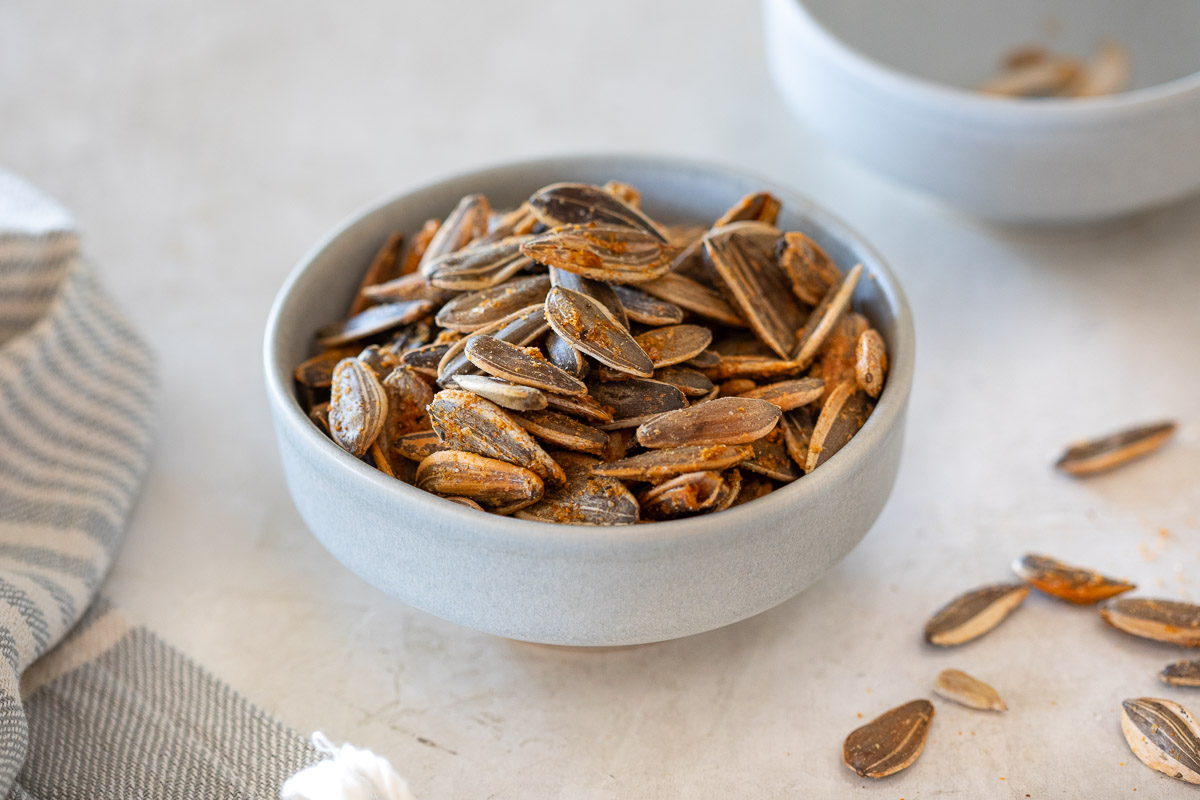
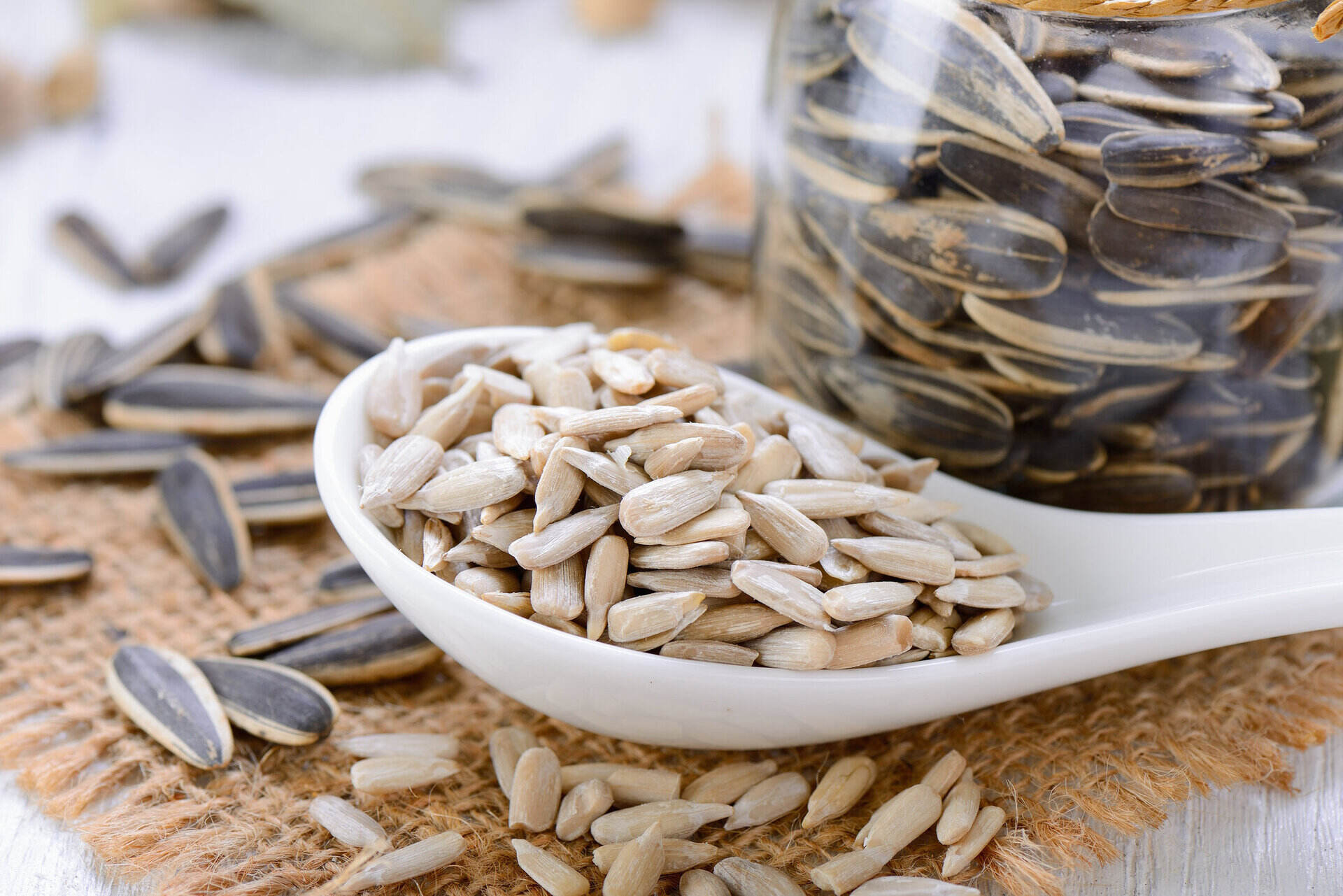
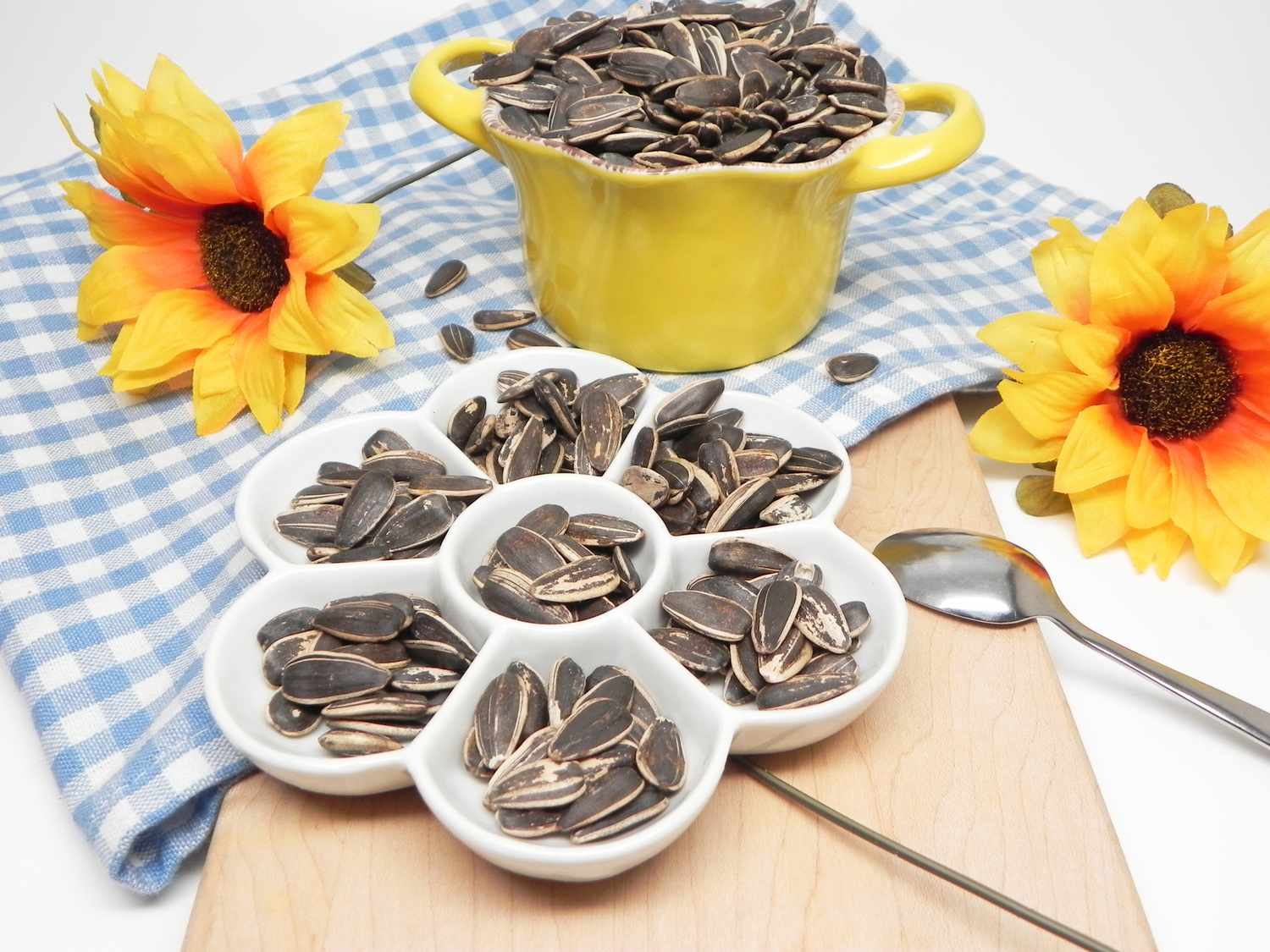
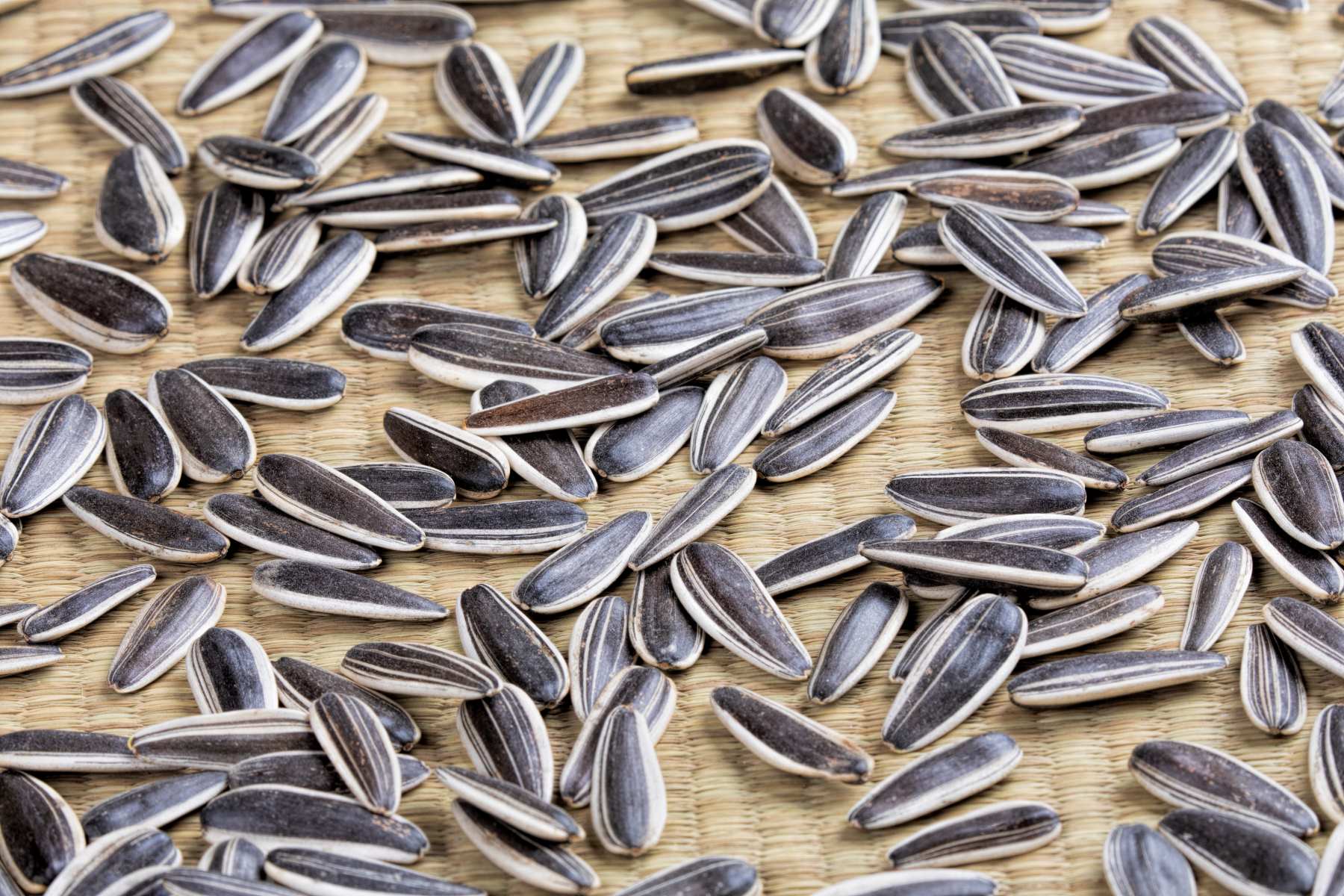
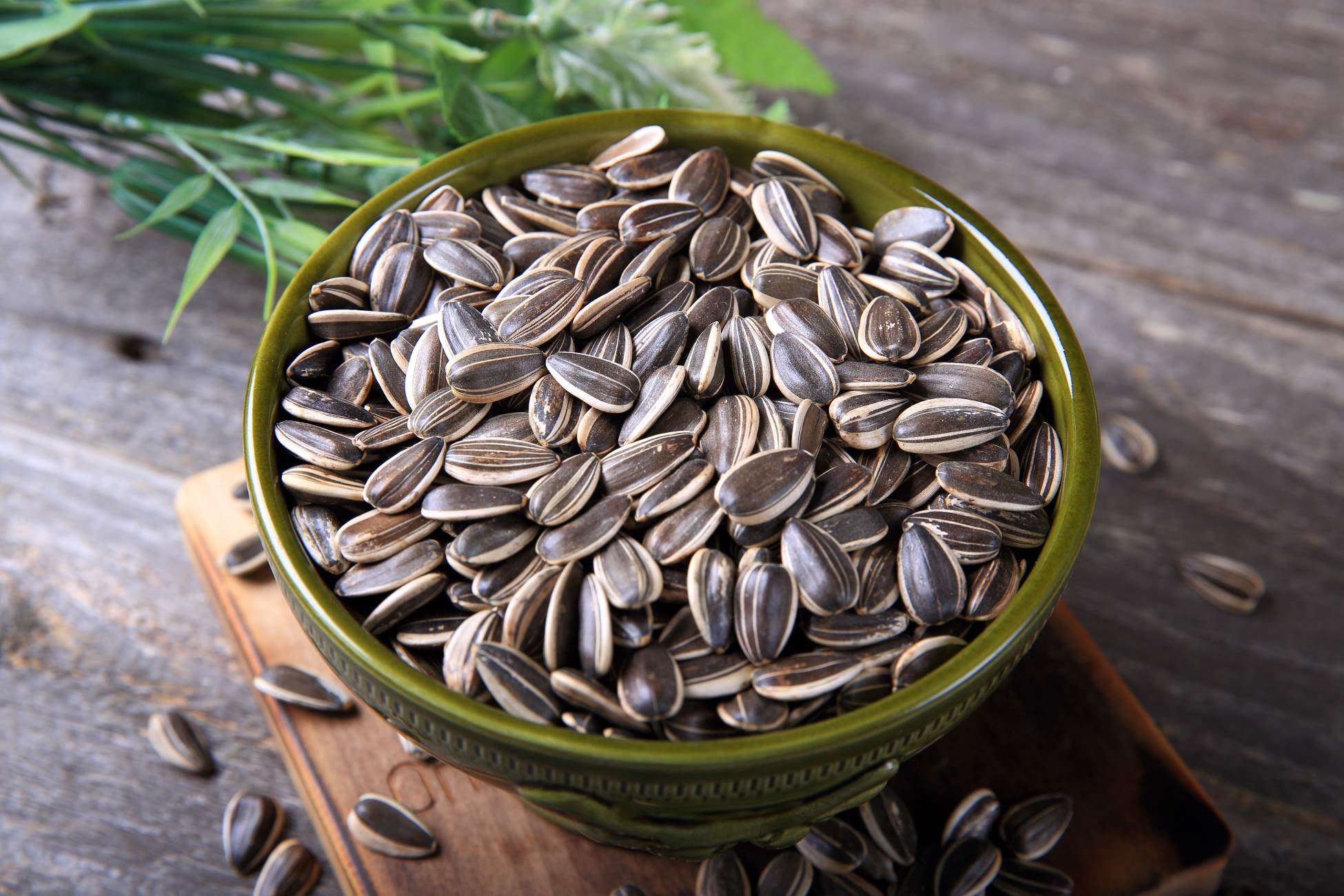

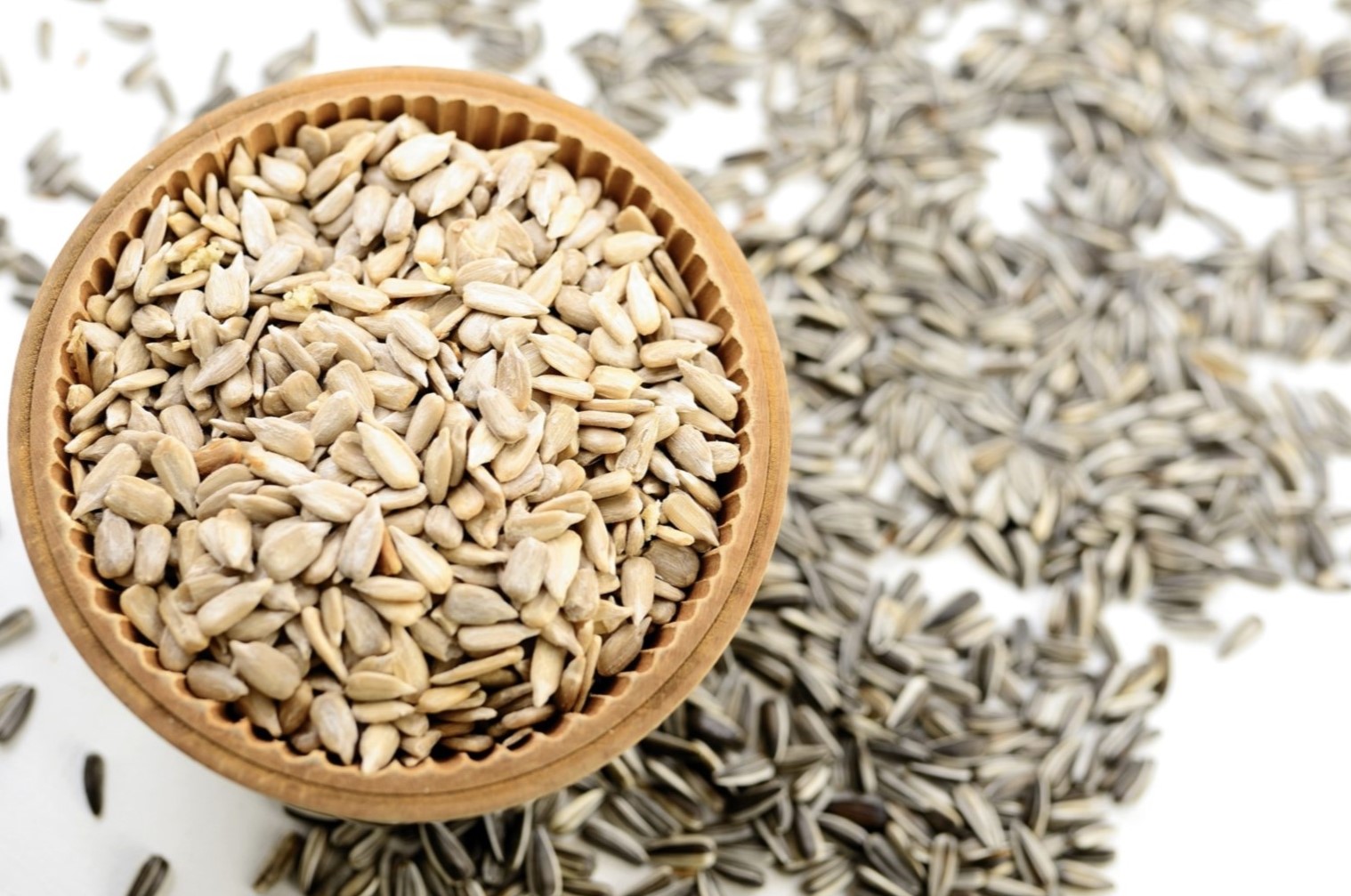
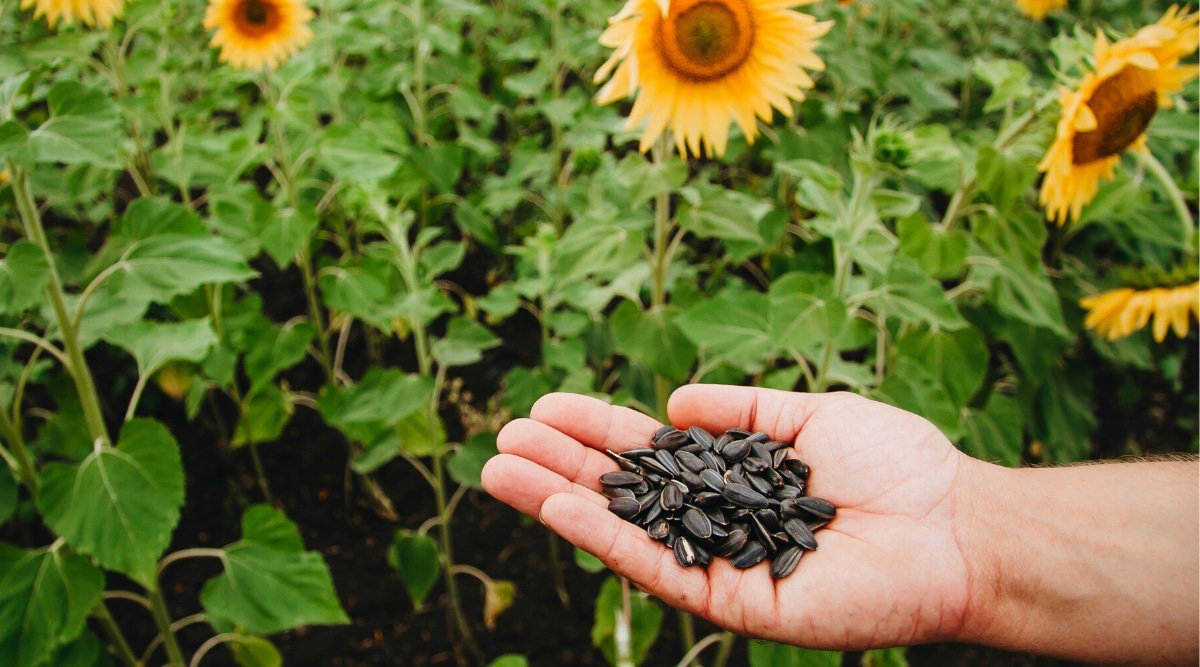
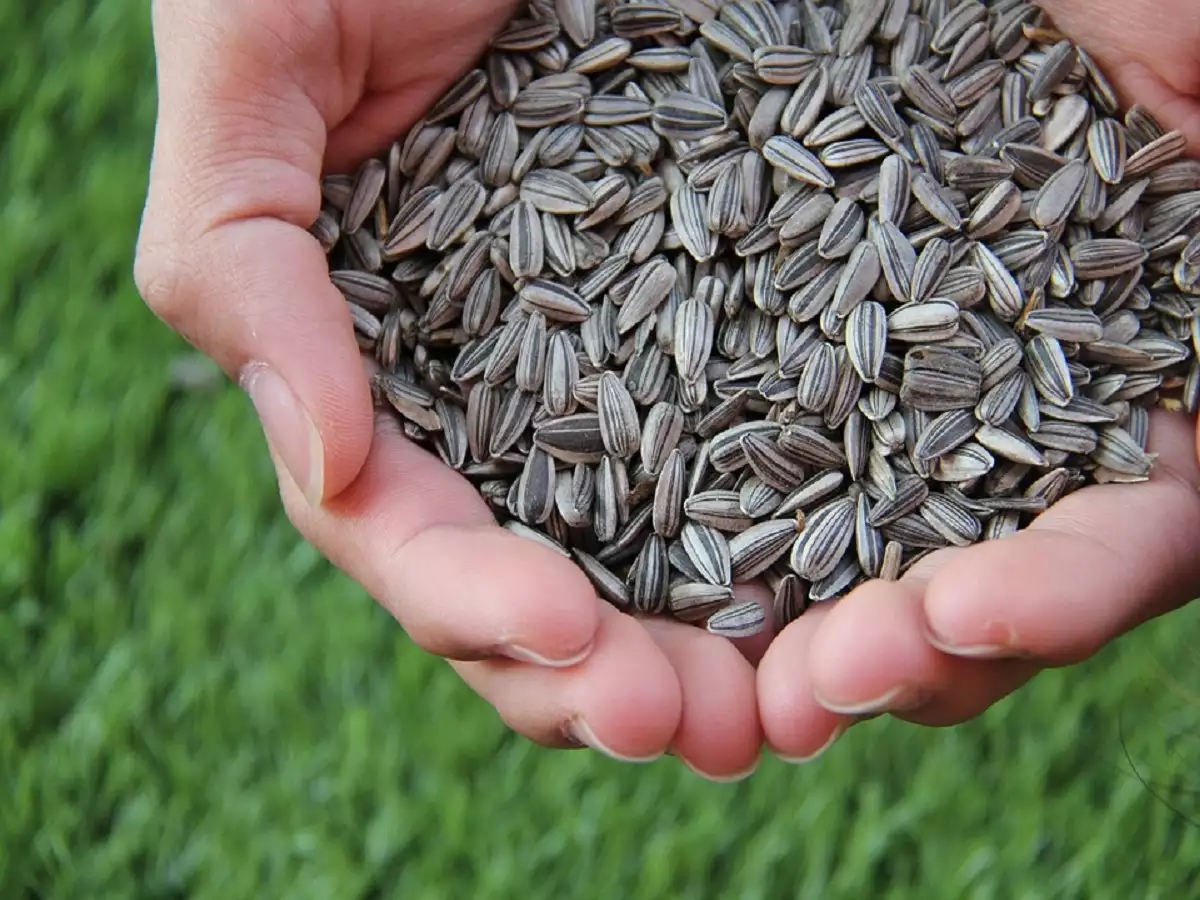
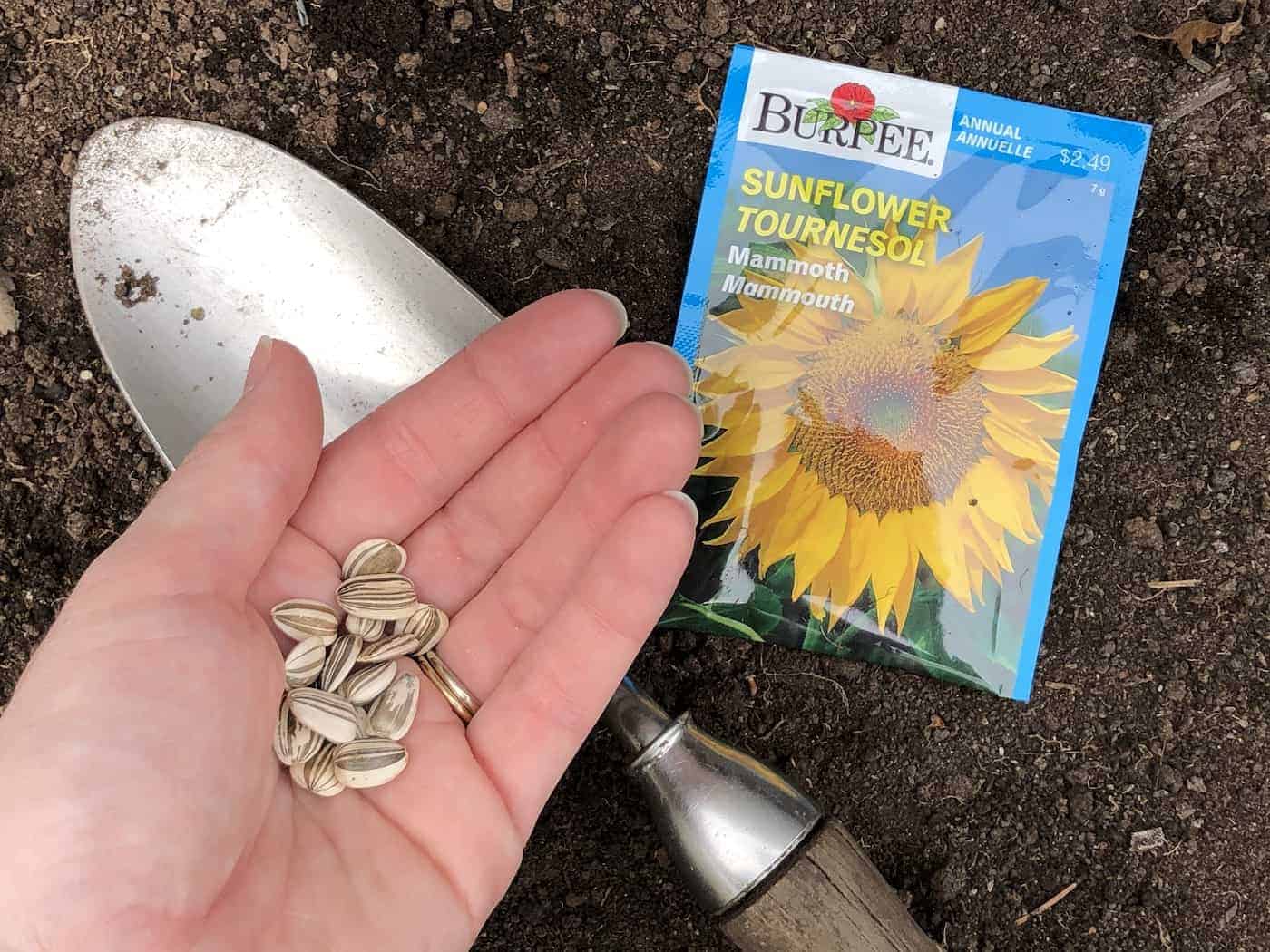
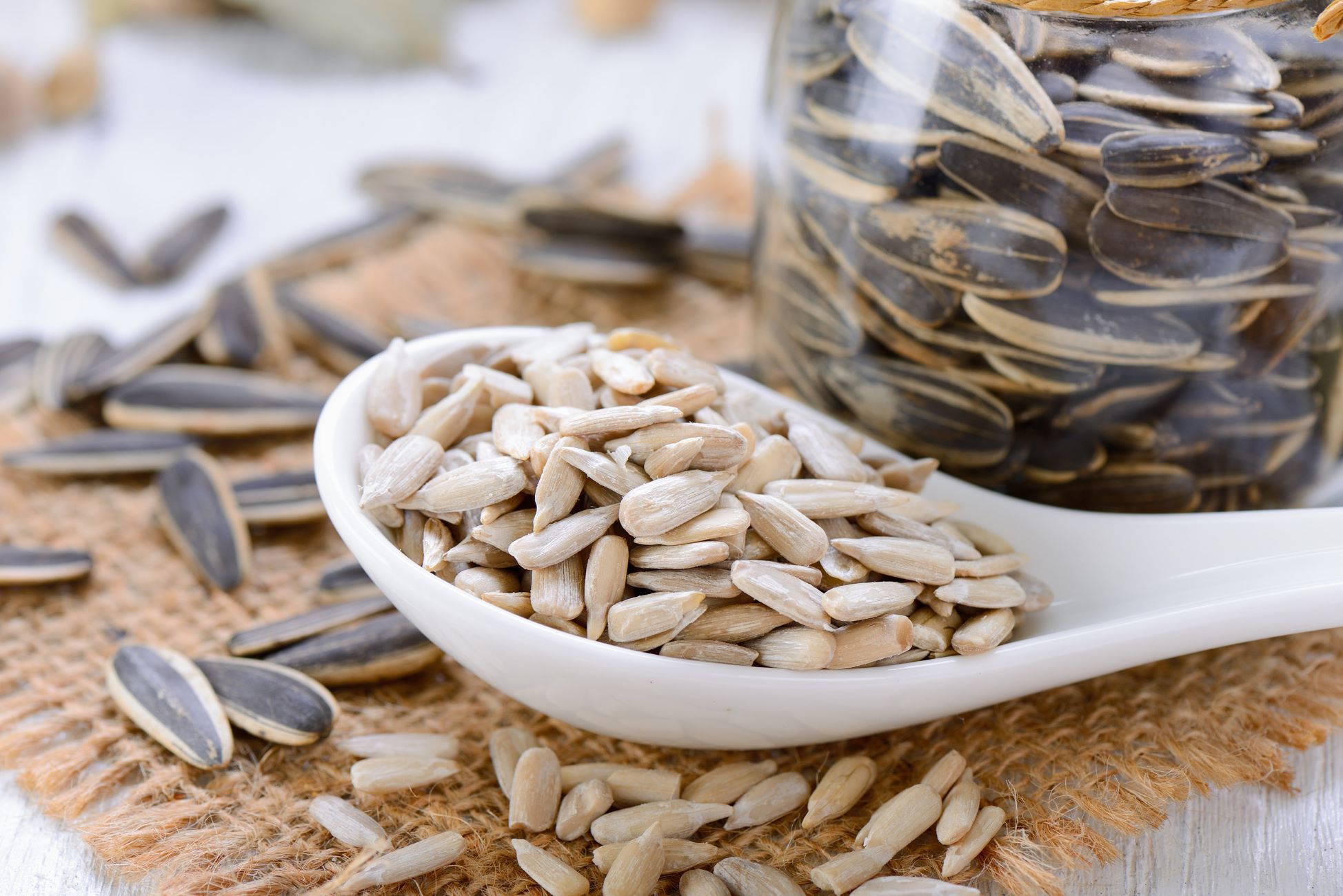
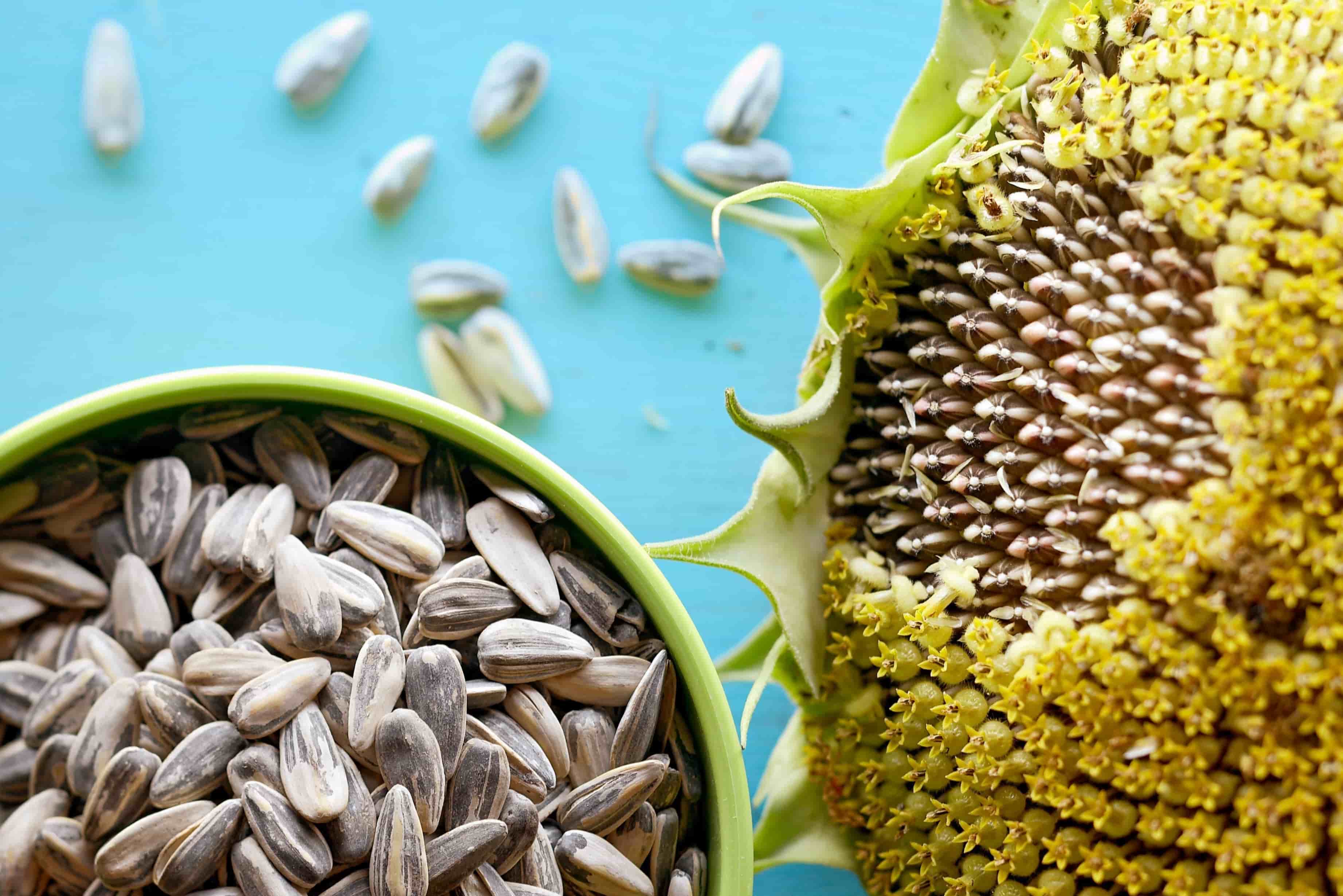
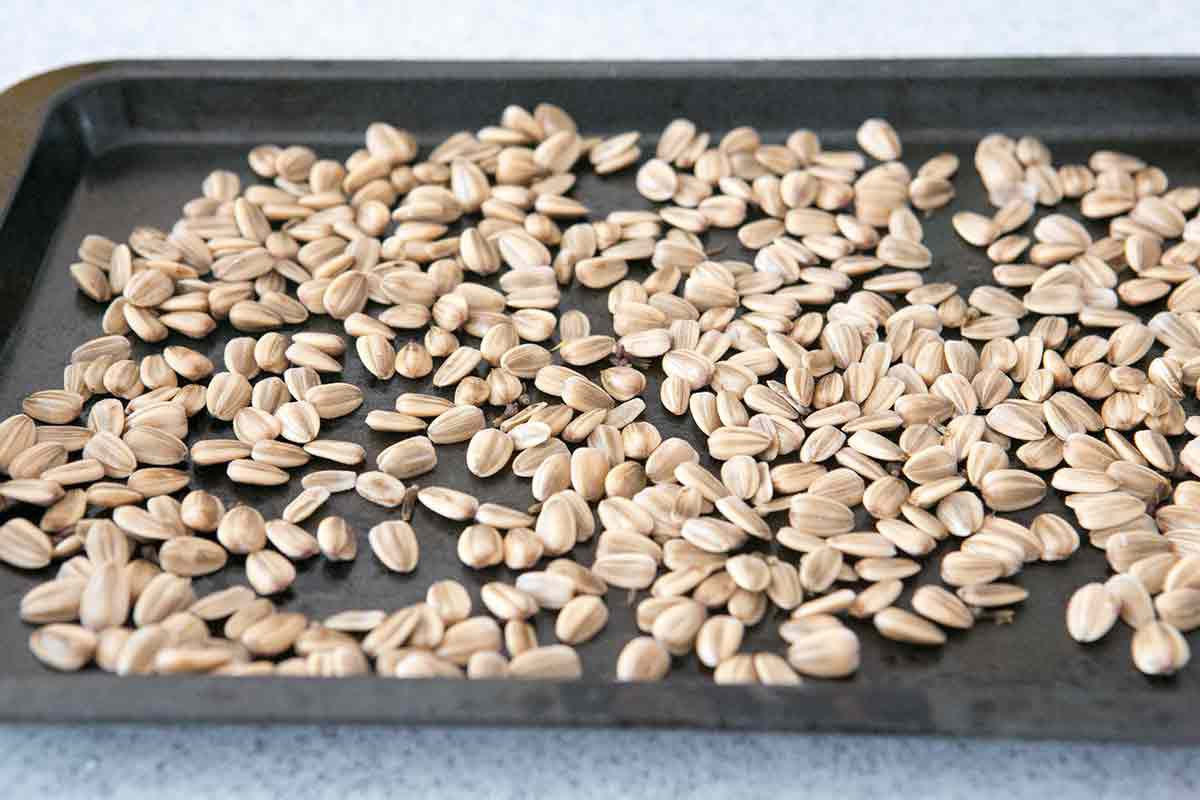

0 thoughts on “How To Store Sunflower Seeds”